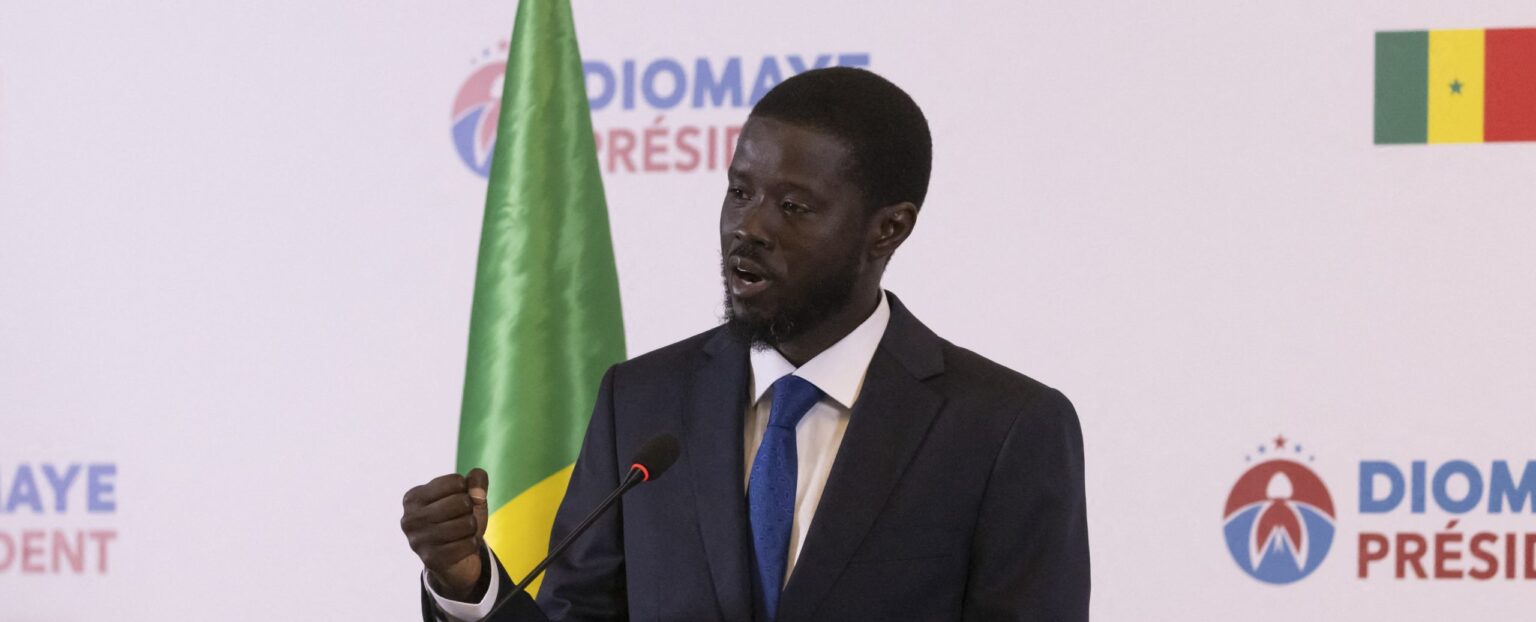- Authorities need to rework Senegal’s program with the IMF after an audit revealed a higher budget and debt deficit than previously reported.
- During former President Macky Sall’s rule, a review of Senegal’s finances showed that the country’s public and budget deficit was more than 10 percent of the gross domestic product, almost double the 5.5 percent reported under Sall.
- Shortly after taking office, President Faye initiated a review of Senegal’s natural resources sector.
Reworking Senegal’s program with the IMF
Senegal needs to rework its program with the International Monetary Fund after an audit revealed a higher budget and debt deficit than previously reported.
Senegalese authorities hope to meet all the prerequisite conditions to reach a new agreement with the IMF by Q1 2025. This is according to Senegal’s Finance Minister Cheikh Diba, who attended the IMF’s annual meeting in Washington.
“The current program must be updated,” Diba said. “We’re in the process of discussing with the fund.”
Significant debt and budget deficit
In September, a review of Senegal’s finances in the past five years of former President Macky Sall’s rule showed the country’s public and budget deficit was more than 10 per cent of the gross domestic product, almost double the 5.5 per cent reported under Sall.
“Preliminary findings indicate substantial revisions to budget execution data for 2019-2023,” the fund said in a statement following a staff visit. “These revisions are primarily attributed to investments financed through external loans and domestic bank borrowing.”
The audit, followed by an independent IMF review, concluded that the ratio of debt to GDP at the end of 2023 was over 80 per cent as opposed to the 73 per cent previously reported. Moody’s Ratings cut Senegal’s credit rating further into junk status earlier in the month and placed it on watch for further downgrade. The spate of negative news culminated in a brief selloff of Senegal’s Eurobond.
As a result, Senegal’s Eurobond fell among the worst performers in emerging markets. Dollar bonds due 2048 fell for the first time in nine days on Thursday, dropping 0.3 per cent to 74.7 cents on the dollar at 11.16 a.m. in London. Notes due 2033 lost 0.4 cents to 86.52 cents on the dollar.
Read Also: Senegal 2050: A Blueprint for Economic Transformation
Putting the program on hold
Senegal secured a $1.8 billion funding arrangement from the IMF in 2023. However, it has now put the program “on hold.” A 338 billion CFA francs disbursement was previously scheduled for this year likely won’t happen before 2025, Diba noted.
“We were aware of the consequences,” he said. “But when we realized there were these fundamental discrepancies between the figures that had been communicated to the fund, and that formed the basis of our relationship, we realized we had to report them.”
According to Diba, Senegal will not be asked to repay the disbursed funds.
“That would have been the case if we had tried to hide the fact and gotten caught,” he said. “In this case, Senegal did the audit and returned to the IMF with the correct numbers.”
Taking control of natural resources
Shortly after taking office, President Faye initiated a review of Senegal’s natural resources sector, focusing on contracts with partners to ensure they are optimized for the nation’s benefit. The president has indicated that Senegal may seek greater control over its resources as it stands on the brink of becoming a significant oil and gas producer.
Diba said the audit would review the contracts to “ensure they are in line” with the law.
“We can’t change the game’s rules during the game, but the state’s entitled to see if the contracts respected the mining and oil codes in place at the time,” he added. “If there are some deviations from the codes, we’ll try to correct them and move forward.”
Senegal is set to commence operations this year on the $4.8 billion Grand Tortue Ahmeyim liquefied natural gas project, spearheaded by BP Plc and Kosmos Energy Ltd., following several postponements. Meanwhile, the Sangomar oil development, managed by Woodside Energy Group Ltd., began production in June.
The projects are expected to spur 6 per cent economic growth this year and over 10 per cent in 2025.




